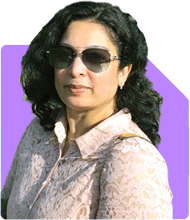Dr Vivek Mahajan | Answer |Ask -Follow
Cardiologist - Answered on Mar 22, 2023
He specialises in treating heart ailments and cardiac interventional surgeries.
He has been working as interventional cardiologist and electrophysiologist at Fortis Hospital since 2013.
Dr Mahajan has a postgraduate degree in interventional cardiology from the Post Graduate Institute of Medical Education and Research, Chandigarh, and a master’s degree in medicine from the All India Institute Of Medical Science, New Delhi.... more

My bp was 135/98, on doctor advice, i am taking medicine tigatel 20 for last 2 months. Now my bp is 123/80. Should i continue taking bp medicine? Age: 33, weight: 65kg, height: 5'6
You may like to see similar questions and answers below
Roopashree Sharma |189 Answers |Ask -Follow
Yoga, Naturopathy Expert - Answered on Mar 17, 2023
Dr Karthiyayini Mahadevan |1145 Answers |Ask -Follow
General Physician - Answered on Jun 25, 2024
Dr Karthiyayini Mahadevan |1145 Answers |Ask -Follow
General Physician - Answered on Feb 17, 2024
Dr Karthiyayini Mahadevan |1145 Answers |Ask -Follow
General Physician - Answered on Aug 29, 2024
Nayagam P P |4562 Answers |Ask -Follow
Career Counsellor - Answered on May 19, 2025
Nayagam P P |4562 Answers |Ask -Follow
Career Counsellor - Answered on May 19, 2025
Nayagam P P |4562 Answers |Ask -Follow
Career Counsellor - Answered on May 19, 2025
Nayagam P P |4562 Answers |Ask -Follow
Career Counsellor - Answered on May 19, 2025
Nayagam P P |4562 Answers |Ask -Follow
Career Counsellor - Answered on May 19, 2025
Nayagam P P |4562 Answers |Ask -Follow
Career Counsellor - Answered on May 19, 2025
Prof Suvasish Mukhopadhyay |704 Answers |Ask -Follow
Career Counsellor - Answered on May 19, 2025
Prof Suvasish Mukhopadhyay |704 Answers |Ask -Follow
Career Counsellor - Answered on May 19, 2025
Prof Suvasish Mukhopadhyay |704 Answers |Ask -Follow
Career Counsellor - Answered on May 19, 2025
Prof Suvasish Mukhopadhyay |704 Answers |Ask -Follow
Career Counsellor - Answered on May 19, 2025
















